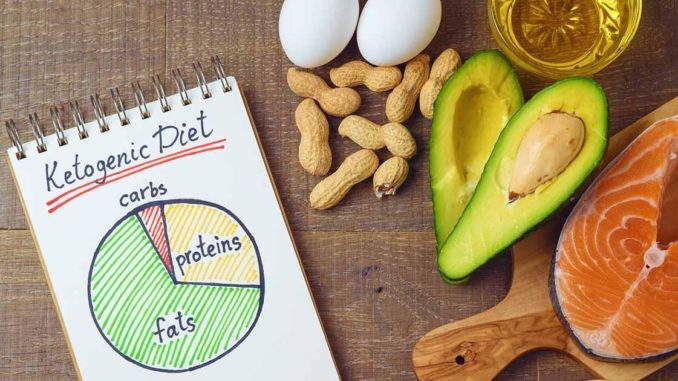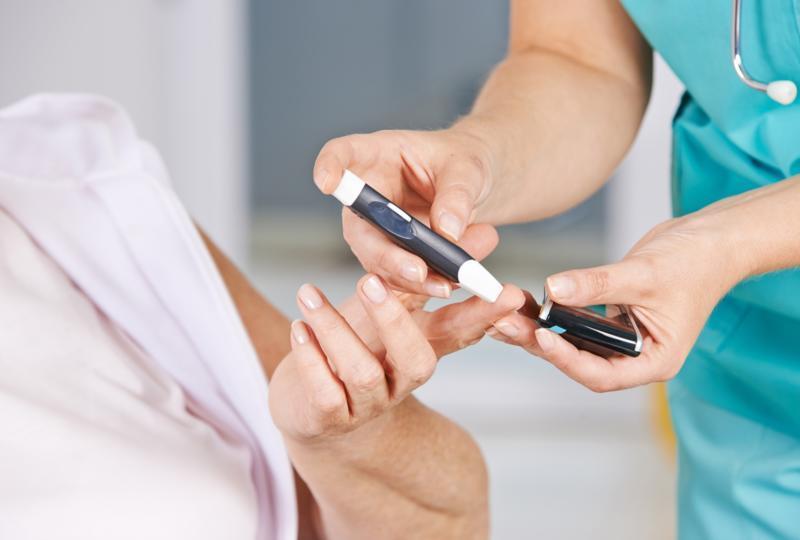
Fad diets always pop up in the health and weight loss world. Even though some of them manage to gain some fame, the majority tend to fade away as quickly as they popped up. The ketogenic diet has been trending for quite some time now.
Though this high-fat-low-carb diet was initially demonized by fat-phobic health professionals as well as the media, it has continued to gain popularity.
Now with plenty of research studies backing its various health benefits, it is becoming evident that the ketogenic diet is no fad diet. But this high-fat diet is not for the faint-hearted.
Over the past few decades, we have all been mentally conditioned to believe that dietary fat is bad as it makes you fat and leads to heart diseases and heart attacks. With such conflicting advice, it’s hard to know what the actual truth is.
If you wish to follow this diet wholeheartedly to reap its miraculous health benefits, you first need to focus on understanding what exactly is a ketogenic diet.
What are Ketones?
The “keto” in the ketogenic diet is named after the “ketones” that result from the breakdown of fats for energy. Our diets are normally high in carbohydrates and this is broken down into glucose molecules in our digestive system.
This glucose is the primary energy source in our body. The keto diet is a high-fat – low-carb diet where the carbohydrate content in the diet is so low that the body is forced to use ketones from fats to fuel its functions, instead of glucose.
When carbohydrates are consumed, they are easily digested by our bodies and the blood glucose levels shoot up. The pancreas releases insulin which metabolizes this blood glucose.
Insulin is also called the fat storage hormone as it suppresses fat burning and promotes its storage, causing us to gain weight. This means that the shortage of glucose and the absence of insulin are two factors that promote fat-burning and fast weight loss.
Our bodies are incredibly adaptive. As long as there is a scarcity of glucose and an abundance of fat, the body breaks down the fat to create ketones and uses this for fuel. But the moment, carbs are reintroduced, the body switches back to using this easier source of energy.
This process is a very natural evolutionary mechanism of the human body for surviving times of famine.
Getting into Ketosis
The good news for those attempting to lose weight is that the ketogenic diet is not a low-calorie diet, it is just a low-carbohydrate diet. This means you don’t have to eat little and stay hungry like you are expected to with the ‘typical’ weight loss diets.
The best part about a keto diet is that you get to eat all the delicious fatty food and still lose weight. It’s not that you get to eat unlimited foods, but the fat content in a ketogenic diet reduces food cravings and keeps you feeling energetic and satiated.
With a ketogenic diet, effective weight loss begins when the body enters a metabolic state called ketosis. As you embark and continue on your ketogenic journey, the body continues to burn its reserves of glycogen and continues to use glucose as its fuel. When there are no more sources of glucose, the body starts breaking down dietary fat.
The liver is the organ that produces the ketones, from the fat and this is used to fuel the entire functions of the body, including the brain functions. This metabolic state is known as ketosis. Once the body enters ketosis, it can access stored body fat more easily and burn them off too.
Starving is the fastest way to get into ketosis as the body will eventually turn to its fat stores for fuel. But this is a foolish and dangerous thing to do and there are a lot of negative repercussions associated with such an extreme act.
A ketogenic diet is the best way to attain ketosis and get into a fat-burning mode without such dangers. You can enjoy the weight loss benefits of a ketogenic diet without having to go hungry. Unlike fasting or extreme starvation diets, the ketogenic diet can be followed for as long as you like.
The 5 Most Amazing Benefits of Ketogenic Diets
From effective and sustainable weight loss to improving glycemic control and treating acne and even epilepsy, there are so many benefits to a ketogenic diet that this short article cannot do full justice to the topic. So here we are focusing on just the 5 most amazing benefits of ketogenic diets.
1. Sustained Energy Levels

Most weight loss efforts and diets leave you feeling weak and tired. Those who eat carb-heavy meals often find themselves feeling sluggish after the meal. Even if they get a quick high from sugary or carb-laden foods, the energy levels crash soon after as the carbs get used up quickly.
Since a fat molecule has over twice the calories in a carbohydrate molecule, a keto diet provides a steady supply of energy.
Fat provides 9 calories per gram while carbs have just 4 calories per gram. So a small number of healthy fats can fuel you much longer than a heavier carb meal.
2. Reduces Appetite and Food Cravings

Hunger and food cravings are usually constant companions of those who try out various crash diets with the hopes of weight loss. Eventually, this utter misery overcomes their willpower, and they go wild with binge eating or cheat meals,
A ketogenic diet has higher satiety effects that leave a person feeling much happier about following such a diet.
A study conducted by the Department of Psychiatry and Behavioral Sciences, Duke University Medical Center, USA, investigated the effects of weight loss diets on mood, food cravings, and other self-reported symptoms among ketogenic diet followers. They noted that
“ Symptoms of negative affect and hunger improved to a greater degree in patients following a Low Carb Ketogenic Diet compared with those following a Low Fat Diet.”
When protein and fat are used to replace/reduce the carbohydrate content in meals, most people actually eat fewer calories. Appetite reduction is one of the first noticeable effects of following a keto diet.
3. Effective and Sustained Weight Loss


As mentioned earlier, the drop in insulin levels while following a healthy low-carb diet turns your body into a fat-burning machine. For those following a ketogenic diet, weight loss is guaranteed as long as they don’t overeat.
Through the body becoming more efficient at burning dietary, as well as, stored fat, weight loss is ultimately a mathematical game of calories-in vs calories-out. If you take in a surplus of calories, then, you are going to get fat, even if you are in ketosis.
A ketogenic lifestyle is not a license to eat as much as possible, even if you eat the right foods that help you remain in ketosis. To increase ketone production and fat loss, many people try to incorporate MCT Oil into their diet.
If you are following the keto diet, drinking bulletproof coffee in the morning is considered a good way to get some MCT oil into your diet.
4. Controls Blood Sugar

Even if you are not overweight, you should consider following a ketogenic diet, especially if you are pre-diabetic or have Type II diabetes. Compared to other low-calorie diets, the keto diet has been found to be a more effective way to manage and prevent diabetes.
Diabetes Mellitus or Type 2 Diabetes, which afflicts over 300 million people worldwide, is caused when the body cannot release adequate insulin into the bloodstream to control the blood glucose.
When diabetic patients use insulin medications or injections after eating carb-laden meals, they may end up lowering their blood glucose too much, which can lead to a whole host of medical complications. Carbohydrate restriction has been found to improve glycemic control, in diabetics, without the risk of hypoglycemic reactions.
In a study conducted by Dr. Eric C. Westman, it was recorded that
“ Due to the potent effect of carbohydrate restriction in decreasing blood glucose levels, insulin medication has to be reduced by 50% on the first day of dietary carbohydrate restriction to avoid hypoglycemia. As the weeks pass, most patients achieve normoglycemia without medication, obese patients lose weight, and patients save money because they are not paying for medications.”
Being a low-carb diet, the ketogenic diet naturally lowers blood sugar levels. After all, eating too many carbs is what spikes up the glucose levels in the blood.
In another study using 84 participants with obesity and type 2 diabetes, it was found that the ketogenic diet was more effective for improving glycemic control than a low glycemic diet.
5. The Cholesterol Impact of Ketogenic Diets

The biggest fear of those wanting to follow a ketogenic diet is that the high-fat content in the diet will raise cholesterol levels and lead to clogged arteries and ultimately a heart attack. But the truth is actually the opposite. Low-carb, high-fat diets, such as the ketogenic diet, actually reduce such risks by improving the triglyceride and cholesterol levels associated with arterial buildup.
LDL or Low–density lipoproteins are known as the ‘bad cholesterol’ as high levels of LDL lead to a buildup of cholesterol in the arteries, narrowing it and leading to higher blood pressure. HDL or High-density lipoproteins, known as ‘the ‘good cholesterol’, transport cholesterol to the liver from where it is reused or excreted.
Ketogenic diets lower LDL and increase HDL levels: Compared to low fat diet, a ketogenic diet leads to a significant increase in HDL levels and a marked decrease in LDL levels. It is a proven fact that the higher the HDL levels, the lower the risk of heart disease. The best way to increase HDL levels is by eating healthy fats.
Ketogenic diets lower triglyceride levels: Blood triglyceride levels are considered strong heart disease risk factors. But elevated triglycerides result from carbohydrate consumption, not fat intake. So following a low-carb diet obviously leads to a notable decrease in triglyceride levels.
Conclusion

To effectively follow a ketogenic diet, you need to get your facts right and overcome deep-seated fears of eating fats. You have to put in the effort to learn which fruits and vegetables are suitable for attaining and maintaining ketosis.
As a high-fat diet, it is also a necessity to understand which are the healthy fat choices that promote your heart health.
The best diets help you lose and maintain healthy weight levels while building muscle and strength. Rather than just a diet, it has to be a nutritional lifestyle change that can be sustained over the years.
The ketogenic provides proper fuel and nutrition for the body while reducing unwanted pounds of fat. A ketogenic diet is about more than just weight loss, it is about achieving the ultimate goal of a healthier body.
